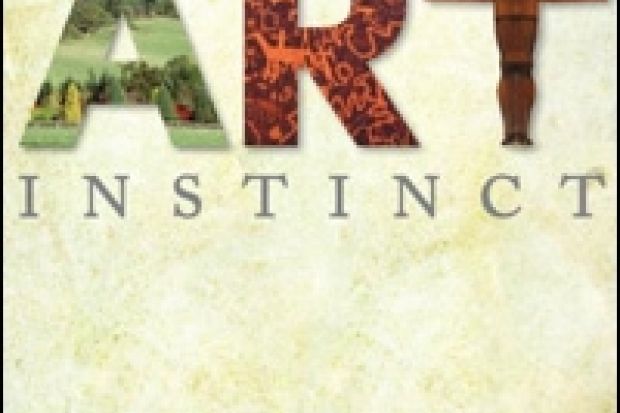Anthropologists have studied art since the 19th century. They have learnt which approaches are worth the candle, and which aren't. Denis Dutton's book is a counterblast to this intellectual tradition. He wants to revive what anthropologists of art consider a waste of time or downright suspicious.
His thesis is simple. Anthropologists have got it wrong. Over-the-top cultural relativists, they badly misplace their efforts because they focus on how different art is around the world. They want artistic products to be sited in their social contexts. They are more interested in cultural details than global generalities about aesthetics.
Dutton wants us to concentrate on what is common. In his vision, there is no single definition for art, rather a set of criteria - such as admiration of skill, emotional charge, exercise of the intellect, display of imagination. As with any Wittgensteinian family resemblant concept, almost any conjunction of these criteria is sufficient to fulfil the definition. Citing evidence, among others, that we all apparently prefer landscapes, Dutton argues that humans are endowed with an art instinct. Its purpose is manifold. Although especially concerned with sexual selection, art allows us to commune with each other and to experience something of another's mind. In other words, Dutton, whose post is in philosophy, has pinned his colours to the mast of evolutionary psychology.
In the late 19th century, anthropologists applied an evolutionist approach to social and cultural phenomena, including art, with peoples ranked along a purported evolutionary scale. But by the 1910s, most had realised this style was too speculative to be worth the effort. And when the scale put Australian Aboriginals at the bottom of the ladder and educated Europeans at the top, there was more than a whiff of self-justificatory legitimation about the enterprise. Instead of theorising wildly, far better to collect evidence first hand and stick closely to its analysis. And this is what most anthropologists have done ever since.
Thus, most of them today disagree strongly with Dutton and his ilk. They see the untestable hypotheses of evolutionary psychology as on a par with Just So Stories. And I would imagine that most anthropologists would prefer the original Kipling to the imaginative tales of latter-day imitators.
A further problem with the approach of Dutton and his peers is that, like hardline Marxists, they provide a single, underlying explanation to an event, even if the explanation is counter-intuitive. In the process, all other possible explanations are either sidelined as secondary or damned as wrong.
I find it difficult not to believe that evolutionary psychology is not a reaction to the rise and rise of that ill-grounded creed, creationism. Although we can be sympathetic to these oppositional aims of evolutionary psychology, is it the sharpest instrument with which to expose the pretensions of the wild-eyed and woolly minded?
Dutton's reading is broad but surprisingly selective. He chides anthropologists for focusing on tribal art: although he refers to Alfred Gell's work, he makes no mention of Gell's celebrated paper on what might be viewed as conceptual art among indigenous peoples. Similarly Dutton criticises one speaker, Joanna Overing, in a well-known published debate about the possibility of a cross-cultural aesthetics. But, strangely, he fails to mention that some of his criticisms are already given in other chapters of the same book.
He also falls into the trap of regarding contemporary hunter-gatherers as unproblematic windows into the world of prehistoric humans: "We still have the souls of those ancient nomads". But hunter-gatherers evolve, and so do we. We just might still have those "souls", but how much have they changed since prehistory? For, as evolutionists would argue, we don't suddenly stop evolving.
But, at the end, the biggest stumbling block for me is that Dutton's vision of prehistory is just that: his vision. For instance, how can he state with any degree of certitude that "enhanced, decorative language use was pointless for Pleistocene survival"? Personally, I find it hard to accept an academic argument that includes the key statement "Women normally cannot help paying attention to how rich a man is".
I teach a course in the "anthropology of art". Good students on that course love polemic. I'll give them this book.
The Art Instinct: Beauty, Pleasure, and Human Evolution
By Denis Dutton. Oxford University Press 288pp, £16.99. ISBN 9780199539420. Published 12 February 2009
